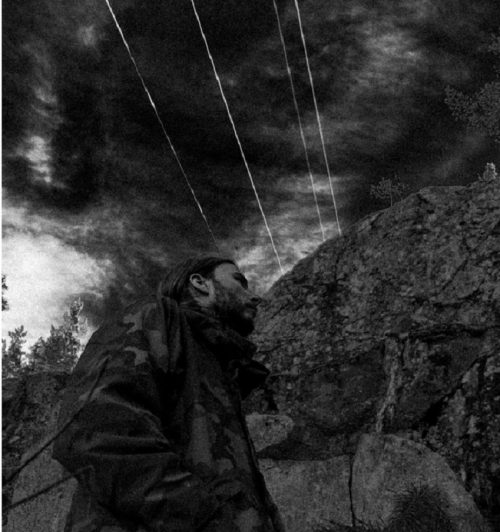
(Comrade Aleks has brought us this fine interview with Roman, the man behind the once-Siberian and now-Norwegian black metal band Bizarrekult, whose debut album was just released this past July by Petrichor.)
“Progressive post Black Metal with angst-ridden lyrics from Oslo, Norway!” When you read that one single line in Bizarrekult’s Bandcamp concerning the band’s new album Vi overlevde, I bet you have a right impression, as a Norwegian black metal band wouldn’t make that shit! But if you’ll read a bit more carefully you’ll easily find that Bizarrekult was founded in Barnaul, Siberia. So what would you say now? Which black metal is blacker?!
Dash it. This story of how a Siberian black metal band turned into a Norwegian one is set out by Roman, the man who has spearheaded the Kult since 2005. And you know, his black metal isn’t that “post” indeed.
******
Hi Roman! Bizarrekult is a new name for many of us, though the band was originally born in Barnaul 16 years ago. What do we need to know about those early years?
Hi, Bizarrekult was indeed created 16 years ago! Time flies. Most importantly it was a spin-off from the symphonic black metal band Dryados, where I performed as a vocalist and partially contributed to the creation of music. In contrast to Dryados, Bizarrekult was my sole venture where I did all the music and lyrics, recorded all instruments (except for the drums, this was handled by Alexander from Dryados). It was an interesting and very different time with trading CDs in the mail, paper letters, slow Internet, and isolation (to some extent – living in Siberia feels very distant from everything).
So may we say these conditions tempered you and sharpened your vision of how real black metal should sound? At least you don’t repeat Dryados’ approach and avoid using keyboards.
Hard to say to be honest. I see it all mostly as a response to environments (nature, society) around myself. I guess it has something to do with properties of sound waves, their frequency, shape – these physical substances resonate with my inner self. As for use of keyboards or any other instruments – I am not against them; they simply have to sit right in the music. There is a melody on keyboards on the track ‘Maturlyk Kulegede’ (from the 2006 demo/2008 split).
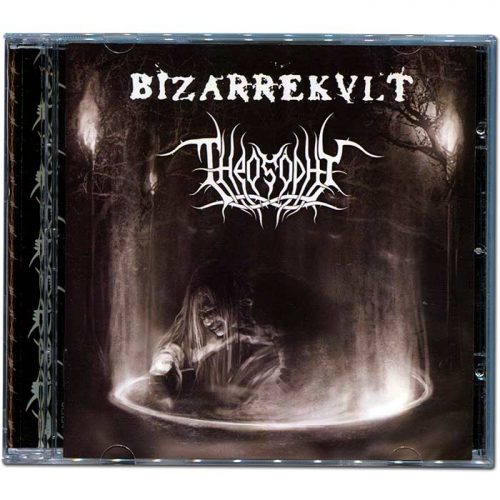
You took part in a split release with another local black metal band Theosophy. Were you actively involved in the local scene, if there was any back then?
Dryados were very active in the early 2000s. We had more than just a local success — an album out on a label in Moscow which was repressed (3000 CDs total), another self-released EP, plans for a new full-length to be recorded in Poland, and plans for a tour in Russia as a support for Anorexia Nervosa, but then Anorexia Nervosa collapsed and everything was stagnating for Dryados as well.
One can say that I built Bizarrekult on the ruins of Dryados, however Bizarrekult did not get any momentum at the time I was living in Barnaul, and I left it soon after the first 6 tracks were recorded. I had some negotiations with underground labels in Germany to release them as a mini-vinyl, but it did not work out, so I offered the label that previously released Dryados to press these tracks on the CD. Theosophy was a natural choice as two of its members at that time were former Dryados musicians – Alexander and Konstantin – while their other two were our friends through another band.
How do you value Bizarrekult’s first years? Was it a kind of necessary experience which helped you to shape the band’s sound as it is today?
It was an important step to start creating my own music, thinking through lyrics and concepts, learning how to record my ideas, sharing and explaining them to other musicians, and finding how to communicate with labels and fellow musicians abroad. I found some of my old emails a few months ago… I was young and ambitious, probably as any young musician should be. So I guess any experience is important in that aspect. However, today’s sound is a result of maturation of taste and other processes that happened in a more recent time.
So Bizarrekult was put on hold for nearly two years, reunited for just one year, and then returned in 2019. Was this hiatus related to your move to Norway?
I think it is appropriate to say that there is nothing to reunite. I recorded six tracks in 2006 while still in Barnaul and four in 2007 while I was visiting my parents. For these two records I involved Alexander on drums and on the four tracks in 2007 also Konstantin recorded bass, simply because I had a very short visit to my parents and did not manage to book enough studio time for that myself. Then I left Russia and all music was laid on ice.
It could have probably stopped there, but somehow when I came to Bergen in 2009 I got a spark of inspiration, bought a guitar, started drafting new songs and built up a local line-up that included Thomas from Gravdal on drums. We had a few rehearsals (I have a raw recording of two tracks from that time) and planned to enter the studio as well as to start playing live, but it was a very challenging and demanding time in my life when I simply had to prioritize work and a small child, so music was abandoned again. My guitar was in a bag for 7 or 8 years completely untouched!
Restarting the project is pure luck and it happened only thanks to Ignat, a friend from Minsk, Belarus. We have been connected through a different hobby – scale modeling – and discovered that we have similar preferences in music, and when he found out that I had songs for a full album that were simply collecting dust for years he told me that I should complete that page in my life. I was very resistant for a few years, but then I gave up, or better to say I found inspiration again, and we teamed up (Ignat recorded guitars for the album) and made it happen. Now there is another album recorded and a 3rd one in the works!
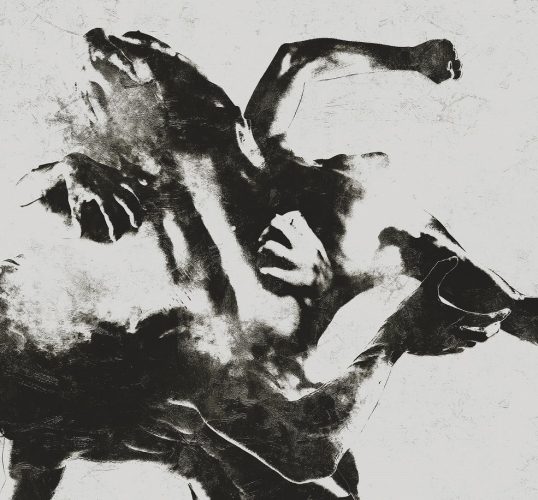
I see that Ignat’s band Adliga isn’t that prolific and it tends towards a post / doom sound. What kind of ideas did he offer for Bizarrekult and how did you mix it with your own stuff?
Adliga is a very different band of course, both in terms of style and in terms of ideas. For me the most important factor is that Ignat has a great sense of aesthetics and in addition to that he is a very skilled and experienced guitar player. He refreshed my riffs and ideas from 2009/10 with additional guitar lines, extending and developing the melodies. It is a perfect collaboration and his background from post/sludge/doom could be heard quite a few places on the album, for example in the final part of “Ensomhet”. Further, he helped to conceptualize the overall sound picture of the album.
But it’s not just me and Ignat who made the album a successful story. Alexander (drums in Dryados, Theosophy, and on previous Bizarrekult records) recorded the drums for this album as well and did editorial work prior to sending the files for mix and mastering. My wife, Dina, sings on three tracks and contributed all the way with feedback on my song-writing. Without her, I would not be anywhere at all, not doing music for sure.
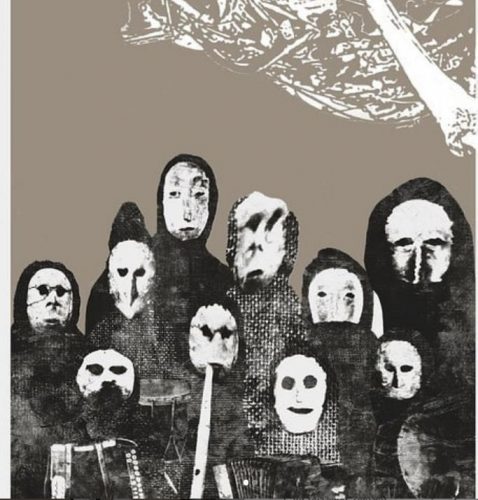
How easy was your assimilation into Norwegian society? And did you try to assimilate to the local scene?
I think my assimilation went very well – I am a Norwegian national, Norway became our home, and it is the motherland for my kids. Norwegian society is very welcoming and kind, although you have to understand patterns and culture in order to feel comfortable. Moreover, I was very lucky to meet great people at work, off work, neighbors, etc. As years went by I also noticed that I developed a very different way of life – more walking in the woods or mountains, choosing less inhabited places for vacation, enjoying Norwegian food more and more. It’s like I am no longer interested in going on holidays abroad.
When it comes to music – there was a start of the assimilation process when I was living in Bergen, but then I dropped out. Let’s see how things will go nowadays. I have very good support from local fans and know quite a number of musicians here, but have not had a chance to play live yet, so the best is yet to come.
Did you search for a “true & evil” vibe in Bizarrekult “inspired by” / “in order to fit” the place? What’s your attitude toward the early Norwegian black metal scene?
No, I never tried to place Bizarrekult into some framework concerning other bands or styles. Sometimes I look out for interesting for drum patterns, but that is simply because I am not a drummer and need to see how drummers do it in order to make a mockup of drums in the midi file on my computer.
When it comes to the early scene – I assume you are asking about my attitude toward events that surrounded it. I was never inspired by these events and never supported the extreme actions by anyone. Norwegian State TV (NRK) made a quite good documentary on the subject; called Helvete (I think it is available with English subs on YouTube?) which has interviews about the early days with people from Mayhem, etc. For an ordinary person in Norway the black metal scene is an established cultural phenomenon, but not a major trend of any kind.
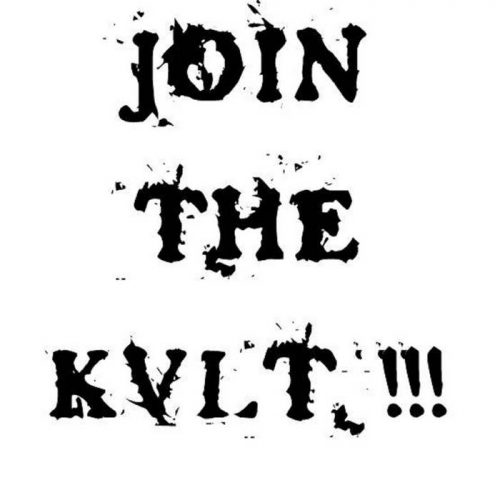
It is stated that the lyrics on Bizarrekult’s EP Join the Kult are written in Tatar language! Can you tell more about this?
Basically all tracks written in 2006 and 2007 (tracks on the split CD and on the Join the Kult EP) have lyrics in Tatar language. The reason is simple – my wife is half-Tatar and when I created Bizarrekult I wanted to add a unique twist to the music, so I asked her mother to translate my poetry from Russian into Tatar. It was very interesting to see how people of an older generation translate your poetry (my mother-in-law was a translator by profession) and appreciate your work, although they do not share your interest in extreme music. The result of this cooperation was original and got a significant appreciation by the Tatar listeners, not only metal-heads, but “normal” people as well. It was very cool to read reactions back in the days! But as my mother-in-law died some years ago we decided not to continue with that direction.
What were your lyrics about?
The lyrics on those old tracks are resonance to society, but also about searching for a path in life. I put Russian poetry, which was the basis for Tatar texts, on the bandcamp page. I guess anyone can translate into English if necessary. At that time I was probably influenced by Russian poetry of the early XX century – Mayakovsky, Mandelstam, etc.
How did you get a deal with Petrichor for the Vi overlevde release?
Well, I guess they like the art created by Bizarrekult! A lot of effort was put into Vi overlevde – music, lyrics, and the artwork that accompanies the music and extends it – all this made it a good combination. And I think it all turned out into a very productive collaboration – the label did a great job with manufacturing of the physical editions on the album – different LP colours, CD, MCD – and promotional reach has been quite good.
If you wonder about “how we actually got a deal” – nothing new since mid-2000s on that subject, just sending promos to labels and hoping they would listen to it and come back to you with a reply. The only difference between now and then is that back in the days you would expect a snail-mail letter and now it is all by emails. However, the difference is of course the amount of promo packages that labels receive these days. One has to be lucky and don’t give up.
What’s the story behind the artwork? Did you just choose completed art or did you discuss with Ivan Gladkih what you wanted to have?
The artwork was created specifically for the album, and we actually have one art for each of the tracks, so that people who purchased physical copies really have something special – art that accompanies the lyrics and connects it all into a complete experience.
We (Dina and me) initially discussed with Ivan the vision for album, ideas for possible art directions, and the lyrics. Based on this he first created the owl and then the moose. These are the main characters for the album and then there are other conceptual arts inside the booklet.
The owl symbolizes life that is going to attack you with sharp claws the moment you are least prepared. The moose is the experienced mature person burdened by his thoughts and failures, drifting alone across the landscape. I think Ivan did a fantastic job – many people noted that they were first attracted to the album by the moose cover and got into a trap with the music as well 😉
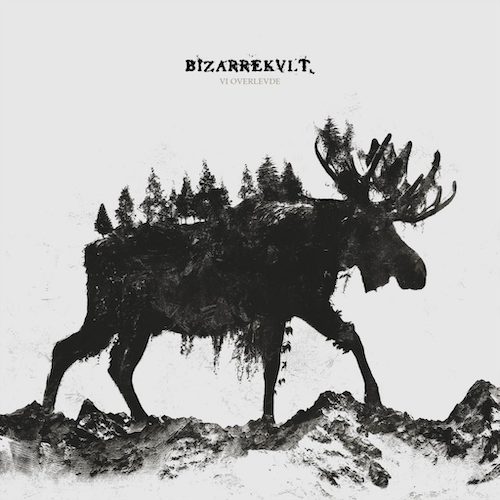
Vi overlevde sounds very solid for my ears – there are straightforward approaches and some cold anger from the ’90s alongside a few twists, which I would describe as “modern ones”, though you avoid falling into the post-black metal trap. How long did you work over this formula?
Thanks! I guess this is how I see music – indeed there are references to the atmosphere of the good old ’90s but then I have a diverse taste in music which I can’t hide away when I am creating something myself. The final sound of the record was further influenced by Ignat’s style of play (he is into post-metal and doom) and of course by the skills and vision of the sound producer – Miguel Tereso from Portugal. He crafted a clean but very powerful sound, something similar to Gaerea in terms of sound production (Miguel recorded and produced their albums as well).
Which bands formed your vision of Bizarrekult and how much of the original stuff you played in the early ’00s do you see in the new material?
I’d say it was Carpathian Forest and Khold for me in the early ’00s that led the way to groovy, simple riffs, and then you can add on top anything from old Kreator to My Dying Bride, Alcest, and Depeche Mode 😉 I like to play jazz chords on the guitar, although I never listen to anything jazz-like nor do I have any formal training in guitar playing. The tracks that you hear on Vi overlevde were in draft form already in 2009-10, when I was living in Bergen, but then they received fine polishing in 2019-20 during the recording, so the backbone is still there, although the sound and vision is more mature these days.
Do you use Norwegian in the lyrics on this album? Does it express more effectively Bizarrekult’s message?
Yes, all lyrics on Vi overlevde are in Norwegian (English translations are available on bandcamp). When we were discussing recording the tracks, for me the question of identity and message was the most important one. “What can I say? And do I have something to say at all? Clearly, if there is nothing to talk about I will not make this album, as I see no point in simply screaming something just for the sake of screaming and recording it”. So I went through a very deep process of reflections on myself, my life, past and present, failures and success, experiences, feelings. It is all very personal, sometimes too personal and intimate, but then framed into metaphorical and sometimes fictional settings.
And yes, I think it expresses the message like nothing else. It is about my identity and me. What is very rewarding is that the message got through – I received very positive feedback from Norwegian, Danish, and Swedish listeners as well as people who have a deeper connection to the topics raised in the lyrics. Moreover, I am astonished to see people taking the art further and making their own art (like this image by July):
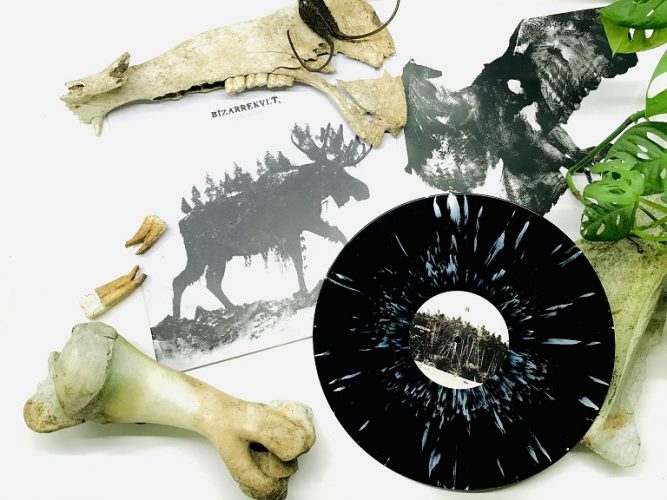
Roman I’d like to thank you for your patience and in-depth answers, that’s much appreciated. May we expect more from Bizarrekult in the near future or will you take a pause before the next manifestation?
The pleasure is mine, thank you for the opportunity to discuss Bizarrekult – and yes, there will be a follow-up fto Vi Overlevde – the album is recorded and will be mastered at the end of this year and then it all depends on how fast the planning goes with regards to release.
